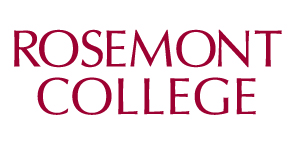Online ESL Program Specialist (PK-12) Certification
 Meet the Demand for Effective Leadership in Culturally and Linguistically Diverse
Classrooms
Meet the Demand for Effective Leadership in Culturally and Linguistically Diverse
Classrooms
With jobs in the ESL/TESOL fields projected to grow by 11 to 14 percent through 2030, there is increasing demand for qualified English-as-a-second-language educators. Rosemont College’s 100% online ESL Program Specialist Certification provides you with the expertise needed to support the success of English learners in PK-12 settings, while advancing your career.
ESL teachers must possess an in-depth understanding of language, culture, and the tools to facilitate learning. To meet that need, students in our program acquire the background, content knowledge, and methods of differentiation necessary to facilitate language proficiency along with content and promote overall academic achievement.
Applying is Straightforward and Free
Rosemont has been supporting students like you to advance their lives, and those of their families, through education since 1921. We believe a quality education should be affordable and attainable, and our application process reflects this. Applying is easy, and free. And we’ll only need a few supporting documents to make sure Rosemont is the best fit for you. Click here to learn about how to apply and associated requirements.
Gain Real-World Experience with an Immersive Curriculum
Rosemont graduate education professors are leading experts in the field, making extraordinary contributions to school administration, teaching, literacy, leadership, ESL programming, and more. Learn more about the program faculty.
The PK-12 ESL Program Specialist Certification is a 16-credit (three-semester) program that is offered in a traditional 14-week-semester format. It is open to individuals with Level I or Level II instructional certification. Sixty hours of fieldwork are embedded into the curriculum, providing invaluable opportunities to employ new concepts and skills by teaching English learners.
The increase in ethnic diversity has caused many educators to expand their knowledge of multicultural education in schools. Students in this course will study the process that creates a culturally responsive classroom to embrace and maximize student diversity in a positive manner which increases academic achievement.
They will develop the attitudes, knowledge, and skills to work effectively in schools that are diverse in terms of race, ethnicity, gender, ability, language, socioeconomics, and family configurations. Furthermore, students will work together to gain theoretical and practical knowledge and resources applicable in any K-12 setting.
Participants in this course will become knowledgeable about the nature and structure of language and how first and second hand languages are developed and acquired.
Basic concepts, scope, and methodology of the science of linguistics in its historical and descriptive aspects will be reviewed including topics and issues in current linguistic studies.
Students will explore and develop a repertoire of effective ELL teaching strategies to become proficient at supporting students' secondary language and literacy development and academic achievement.
The focus of this course will be the teacher’s role in establishing an academic field of study through which English Language Learners (ELL) are instructed in social, cultural, and academic language skills to improve her/his school performance. Instruction involves the teaching of listening, speaking, reading, and writing at appropriate developmental and proficiency levels with little or no use of the native language.
Classroom and ESL teachers are expected to collaborate for the delivery of an effective learning experience utilizing various assignments, lesson plans, projects, assessments and/or field work. All grade levels (K-12) are discussed, but for these specific certification curriculum purposes, the PK-4 broad ban will be specified in all assignments and activities.
This course will introduce students to current best practices in classroom assessment and explore the critical role that assessment plays in the teaching and learning process. Understanding of the use and purpose of formative and summative assessment strategies will be developed, with an emphasis on providing feedback and making adjustments to instructional practices.
The link between assessment and grading will also be discussed. Assessment will also be viewed in light of No Child Left Behind (NCLB) and the emphasis on data-driven decision making and standards-based instruction. Concepts related to assessment and measurement, such as validity, reliability, and other statistical measures will also be explored.
This course provides an overview of the process for the development of a program of services for ESL students. Curriculum development and implementation, instructional design, and models of effective ESL programs in schools are studied.
Special attention is given to appropriate educational goals and the adaptation of methods, strategies, resources, and materials to address the specific needs of ELL's to assist them achieve success in the classroom. Evaluation of varied curricular and teaching activities for diverse ELL's will be addressed.
This course examines the educational theories, practices, and research related to the education of English Language Learners (ELL) and Bilingual Education. Current trends and key issues that contribute to effective teaching and learning for ELL's in the classroom are studied in addition to the linguistic, cultural, and social needs of students who are speakers of languages other than English.
